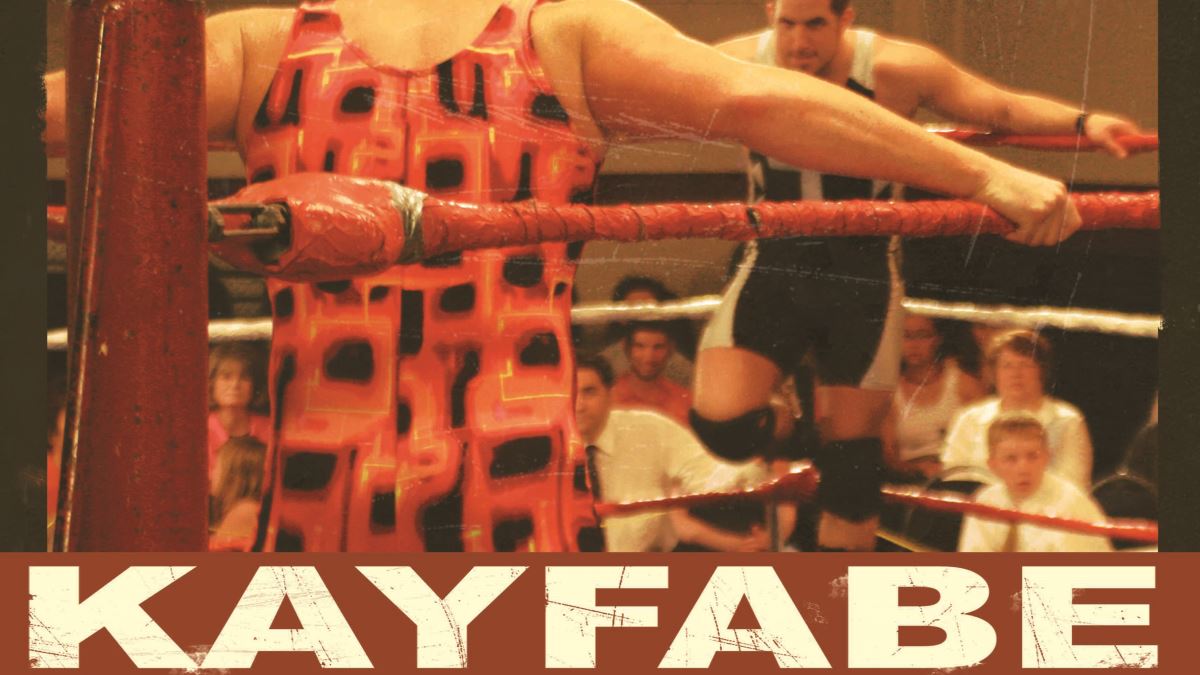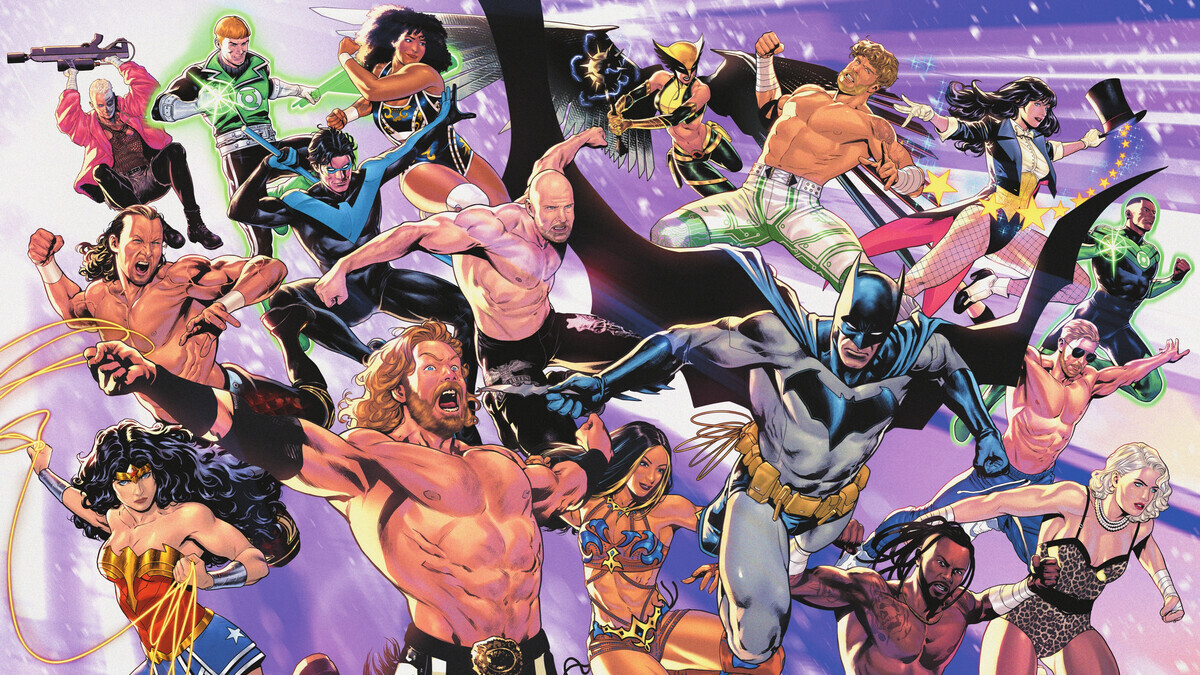There are two kinds of comedic movies: the ones that are funny because they are written that way and the ones that are funny because they weren’t written to be funny at all. Leave it to a movie about independent wrestling to somehow be both.
Kayfabe, the first independent film to be shot by Kayfabe Entertainment, is a “mockumentary” about — what else? — independent wrestling. The movie’s website describes the film this way: “In much the same way as This is Spinal Tap lampooned the world of heavy metal music and Best in Show skewered the sub-culture of competitive dog breeding, Kayfabe pulls no punches while revealing the hilarious absurdities of independent professional wrestling.”

And make no mistake, the movie is funny and it was intended to be that way. But the reason that it’s funny isn’t necessarily because of the writing and directing (although a strong counter-argument could be made here), but because it accurately portrays life behind the scenes of an indie wrestling promotion, which, just by its very nature, is as hilarious as hell.
Naturally, the writers and producers understood this from the beginning. When Pete Smith, himself an indie wrestler since the age of 17 (and current ECCW champion), started telling friend Mike Raven wrestling stories, they became aware they had the perfect outline for a movie.
“The thing about wrestling,” Smith, better known to wrestling fans as “Rocket” Randy Tyler, explained, “is that backstage wrestling is funny. A regular observer would look at what these guys talk about and listen to what they think of their own sport and look at the way they break new guys in and laugh like crazy. And that’s what we wanted to get across because no one has ever actually focused on that.”
Sure, there have been other wrestling movies made. Nacho Libre and Ready To Rumble come to mind, but the first was more of a kid’s movie and Rumble was, as Kayfabe co-producer Raven put it, “embarrassing.” The key to Kayfabe‘s success was that it would tread on new ground.
“People have watched other movies or wrestling documentaries like Beyond the Mat, and concluded that’s what wrestling is really like,” Raven said. “But they don’t take you totally behind the curtain, whereas in the first shot of our movie, you’re already behind the curtain. People have never seen what it’s like behind the curtain of an indie promotion, so we said, let’s show people.”
At its core, Kayfabe is a movie about a small independent wrestling promotion, compactly known as the Tri-Cities International Champion Wrestling Federation (TCICWF) that, after a long and illustrious history, is being forced to shut down. The TCICWF crew gets set to perform its two final shows and to end on a note befitting the legacy of the promotion. But the real story of the movie is about the sport itself and what drives the wrestlers, who if they are lucky make $20 a show, to put their hearts and souls into each match. So it doesn’t take very long for the first joke to come. And then they just keep on coming.
In one scene wrestler “Lucky” Lupichuk explains to the fictitious filmmaker who is making a documentary on the TCICWF, the rationale behind blading. “Oh the blood’s real,” Lupichuk tells the documentary producer as he blades in front of her, opening up a savage wound that spills blood all over his face. It gets so bad the filmmaker asks if Lupichuk needs a towel, which the wrestler refuses. “Oh, it’s really coming down, isn’t it?” the wrestler says as his face is covered in blood. “Do you have a towel?”
In another scene, the TCICWF commentator (and former wrestler) swaggers into a bar and approaches an attractive woman and asks, “Do you happen to know where the closest veterinarian is?” He pauses for dramatic effect and then flexes his biceps. “Because these pythons are sick!”

There is no end to the ribs about wrestling and indie wrestlers in this movie. From dating the promoter’s daughter to the homoeroticism of wrestling, there are plenty of opportunities to put a smile on the audience’s face. And, judging by the reaction at a recent screening, the audience smiled a lot. The producers credit an amazing cast and crew for being able to accomplish such a feat.
“We got really lucky,” Smith said of the crew and cast of Kayfabe. “We had some concerns going in and I can’t say we thought they were all going to do so great, but at the end of the day they all rose to the occasion and everyone did a fantastic job.”
But more surprising to Smith than the work of the cast and crew was the difficulty in actually getting the movie made. “I never thought it would be so hard,” he said. “Pre-production was harder than I ever imagined. Production was harder than I ever imagined and I never thought post-production would be so unbelievably hard. We were ready to throw in the towel several times. And we had said, if they next thing we do doesn’t work, we’re out. But it was having more than one guy working on this that saved us. When one of us was out of the steam, the others weren’t.”
The producers were also concerned about exposing too much of the wrestling scene. The scene where Lupichuk blades, for example, was a subject of debate amongst the writing and directing crew. “If that scene didn’t come across as being funny, I mean, genuinely funny, then I didn’t want it in the movie,” Smith said. “And it turned out really well and you know, it’s not like no one knows that’s what goes on.”
“The business has been exposed,” Raven added. “Eight times over. But we didn’t want to expose stuff that hadn’t been exposed before. Everything we did, we figured Vince McMahon had already exposed and more than we ever could.”

But it was also important for the crew to expose why the wrestlers do what they do and that, even amongst all the absurdity, they take their sport seriously and consider themselves just as much athletes as any pro football or baseball player. That’s why they included a scene where Marco Pain dresses down the roster when they start to get concerned with winning and losing in their respective matches.
“We put that scene in because although we recognize that wrestling is funny, we also want them to know how much we love this business,” Smith said. “And we do. We genuinely love the wrestling business and we wanted to get that across. We want to communicate to people that yeah, we’re making fun about this, but at the end of the day, we’re all in this business because we love it. There are comedic aspects to it, but, really, there’s nothing like it in the world. It’s a theatre; a combination of acting and athletics.”
Smith added, “We truly respect what we do. But we put that scene is because now, perhaps more than ever before, wrestlers seem concerned with winning. And at the end of the day, it’s not about winning and losing. We win when fans have a smile on their face at the end of a match. If they are not entertained, then you fail; I don’t care if you won or lost.”
At a recent screening of the movie in Vancouver, the audience seemed to have won. “I loved it,” one female member of the audience said, “and I’m not a wrestling fan. I didn’t expect the movie to be so funny.” Another, her friend, added, “It was hilarious. I didn’t realize there was so much going on behind the scenes. And I thought these guys made way more money.”
The producers hope those comments from non-wrestling fans means their movie can be a success. They plan to shop the film around at some film festivals, and believe they can even win a couple. “I don’t see us playing at Cannes,” Raven said, “but I think there other festivals where we can absolutely win. Instead of having another boring independent film about someone who lost their bike, they will have a truly original film about a unique subject where viewers can actually learn something.”
Smith added, “This shows people that all the big names in the sport started in a place where there were only 60 people in the audience. The Rock started his career in Memphis; Steve Austin in Dallas. So you get to see these guys struggle against all of the things they have to struggle against as they try to break out into stardom.”
Not everyone will be an instant fan, but Smith has an answer for that too and he got to make a movie about it. “One of the reasons a lot of people might not watch this movie is because they think the sport is silly. That’s good; we think it’s silly too.”
RELATED LINKS
- Apr. 28, 2010: B.C.’s Mike Roselli a wrestler, an X-Man and more
- Apr. 4, 2009: Kayfabe: When wrestling meets Arrested Development
- June 15, 2006: Randy Tyler: Lawyer, teacher, criminologist, heel, filmmaker




